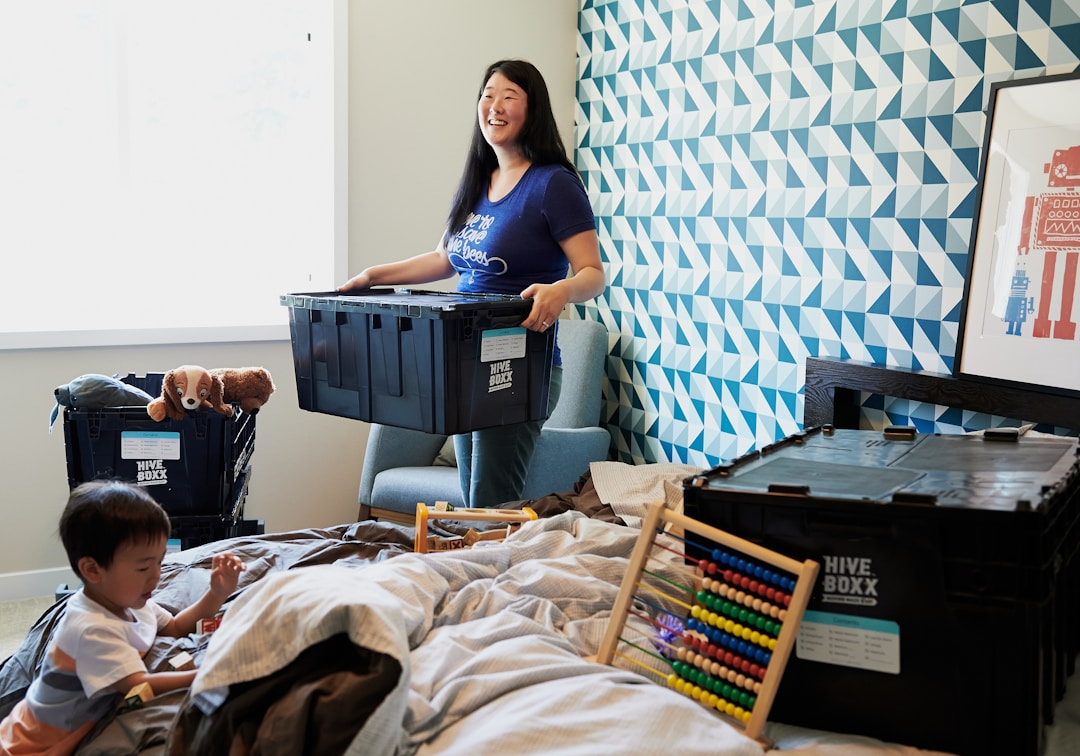In theory, moving should be a fairly simple process. You pack up your apartment, load up a moving truck or storage unit, and head over to your new home. From there, it’s all unpacking and interior design, isn’t it? For some, it might be that easy. For most, moving is nothing short of a massive headache.
If you’re soon to be a new homeowner or you’re simply switching apartments, there’s already plenty on your agenda. You have to handle down payments, mortgage application periods, financing, and closing. If you’ve decided to forgo a real estate agent, it’s even harder. Before you hire the movers and reach out to a lender, here are a few things to keep in mind.
1. Set a firm budget before anything else.

Real estate is still a seller’s market. That means that you’re likely to shell out more for a down payment on a mortgage. Even with the right real estate agent, your success is contingent upon your budget. Out of all the steps to take before buying a home, it’s best to start with the budget. Not only do you need to set a number, but you should also check your credit score and review the details of your credit report. This can help you narrow down your purchase price and decide how much money you’re willing to send and how much home you’re willing to buy.
As a home buyer, you need to divide expenses into two categories: wants and needs. Needs might include a durable foundation, extra storage space, or a lower annual property tax. Needs often include new cabinets, modern kitchen design, stainless steel appliances, or granite countertops. Once you’ve narrowed down the needs, you can set a smarter budget. You also need to factor in buying and selling home furnishings and appliances. Regardless of how many belongings you bring along from your current home, you’re going to have added expenses.
2. Consider your storage needs.
Not every move is a lateral one. Sometimes, your current home may be larger than your new home. If you’re working with a small space, you need to consider storage options. Other times, negotiations with a seller might spill over, and you’ll need to stagger your move. In these cases, you’ll likely want to rent a storage unit. Depending on how much house you’re buying, this is the best way to gain some extra time to sort your belongings, confer with a realtor, and move into your next home. So, first, you need to find a storage facility.
When you’re getting ready to move to a new place, you’re going to want to consider turning to the internet to find a storage unit. Do a location-specific Google search like “storage units prices in Arlington, VA” or “self-storage unit NYC.” It’ll help you narrow down your options based on what’s closer to your new place or between your next home and your current home. You should then talk to the pros about monthly payments, lease lengths, and any interest rates that may accrue. It’s a good idea to review everything before signing any paperwork, too.
3. Think about design needs.

Say you want to know the difference between a standard backsplash and a full kitchen backsplash, or you’re wondering which colors complement each other. You’re definitely not alone. Putting your personal touch on your living space is one of the most exciting components of homeownership. However, before you start comparing tile backsplashes and looking for a set of durable upper cabinets, you need to determine whether there are any pressing fixes. Some of these will pop up during the home inspection and can even help you negotiate a better mortgage loan. Others won’t present themselves right away.
For instance, you may need creative ways to design a small kitchen or maximize limited counter space. The first step is to address these before you begin to fuss over paint colors and ceramic tiles. Some expenses may factor into your closing costs, too. Discuss this with your mortgage broker before your close date. Since it’s not a buyer’s market, you may want to hesitate before you tap into an emergency fund. It’s best if you can get some small kitchen appliances, tiles, or countertop upgrades thrown into the mix.
4. Declutter ahead of time.
Through all the excitement of buying and selling home goods, you may notice you’ve collected a fair amount of possessions. Unnecessary clutter can take up the square footage of your home, and it’s a hassle to get rid of it. It definitely falls in your best interest to declutter before you’re getting ready to move. Spend a few months leading up to the move to your dream home by selling or donating unneeded items. These often include pans, utensils, small kitchen goods, and even tiles. The entire process should help you thin out some of your belongings before they become a major problem. This also benefits your financial situation by helping you cut down on storage costs.
As far as cons go, they are minor compared to the pros. You want to take advantage of the layout of your new home, and your current house needs to be move-out ready. It’ll also make the first month in your new home less stressful by cutting down on unpacking and unboxing. That way, you can focus on the fun part of your home purchase: nesting. For a competitive market, this is one step you can take that won’t cost you any earnest money. All you have to contribute is a bit of elbow grease and your time. It’ll make a big difference come moving day.
5. Don’t be afraid to hire movers.

Some people see movers as a sign of weakness. Others gladly take advantage of their services. While a moving crew isn’t a must, you’ll thank them when they’re carrying your heavy furniture every step of the way. While it’s another expense alongside your monthly mortgage payment, it’s a worthy expense.
When you’re getting ready to move, you need to set a focal point or end goal. That will help you smooth out the process, get the best price on services, and be a more successful buyer.
